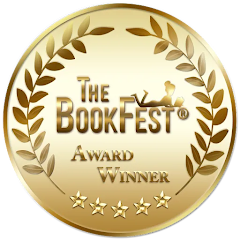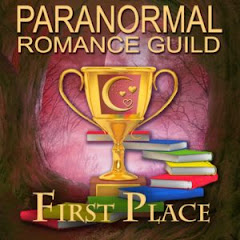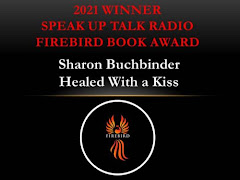t made you decide
to be an author?
Ultimately, reading DRACULA at the age of twelve. As a
result, I became enthralled with vampires (which I’ve specialized in throughout
my writing career, in both fiction and nonfiction) and, expanding from that
niche, interested in all kinds of speculative fiction, mainly horror, fantasy,
and “soft” SF. I began writing stories
at age thirteen because I wanted to create the kinds of things I loved to read.
I also wanted more stories about relationships between human characters and
“monsters,” which weren’t so easy to find in the 1960s, so I tried to write
them.
What do you like
best about being a writer? What do you like the least?
Best: Outlining a new work-in-progress, believe it or
not. Also contemplating the finished product and sharing it with readers.
Least: Generating the first draft, a slow and laborious process for me.
How do you think your life experiences have prepared you for writing?
Being the only child in a
house full of adults until age eight and learning to read at age four probably
contributed heavily. I always read far above “grade level” and to a great
extent lived inside books. It was natural to decide in my early teens that I wanted
to be a writer. I majored in English so I could eventually get paid for
reading. (With the bottom dropping out of the academic job market shortly
before I finished my Ph.D. That plan didn’t work the way I expected, but an
education in English lit certainly helped to refine my skills.) Marriage to a
career naval officer steered me into a wide range of experiences I would never
have sought on my own, a definite plus because it helps if an author’s
background includes other facets besides writing.
Have you ever felt as if you were being dictated to while you wrote a
book--as if the words came of their own accord? If yes, which book did that
happen with?
Not exactly, but DARK
CHANGELING, my first vampire novel, came close. I worked on it in various forms
for decades before the published version emerged, and the characters in that
story—vampire psychiatrist Roger Darvell and his human professional and
romantic partner, Britt Loren—developed into people who felt almost real to me.
You’ve written sixteen novels (plus novellas, short stories, and
literary criticism) and are working on a seventeenth novel. What’s your
favorite time management tip?
If possible, don’t
postpone the day’s writing session until the end of the day, after everything
else that needs to be done. More tasks that “need” to be done will keep popping
up, making it likely that you’ll never get around to the writing. Also, don’t
feel that you need a huge block of uninterrupted time to accomplish anything.
Even a couple of hundred words add up to more words than you had the day
before. It took me a LONG time to convince myself of the latter principle.
Are you a plotter or a pantser, i.e., do you outline your books ahead
of time or are you an “organic” writer?
Definitely a plotter. I
discovered early in my attempts to write novels that if I didn’t know where the
story was going, I would bog down in the middle and lose interest. I enjoy
outlining, as mentioned above, and having the important details planned in
advance reduces the stress of facing a blank screen to write the first draft.
For similar reasons, I write in an almost totally linear order. Another early
discovery—if I wrote the “best” scenes first, out of order, I would lose the
motivation to fill in the other scenes.
If you had one take away
piece of advice for authors, what would it be?
Read constantly, both
inside and outside your chosen genre. That’s the best way to develop the
internal “ear” for good prose as well as “stock” the brain with background
material for your own work.
Did music help you find your muse with this book? If yes, which song
did you find yourself going back to over and over again as you wrote?
No, I’m not very musical.
While I have lots of favorite songs (which I enjoy for the lyrics more than the
tunes), I have never combined music with writing the way many authors do.
Tell me more about SEALING THE DARK PORTAL.
Almost nothing Rina remembers about her life is true. Rather than an
ordinary librarian, she is a sorceress who fled from another world to ours when
creatures from an alien dimension devastated her home and killed her family.
Now they have pursued her to our world, summoned by a sorcerer who plans to
open a portal and invite monstrous entities from the void between dimensions to
overrun this planet. Rina’s former bodyguard, a cat shapeshifter who was once
her lover and still yearns for her, helps her true memories to awaken. She must
come to terms with the truth about her past so that together they can save
their new home from the fate of their old one.
How about an excerpt from SEALING THE DARK PORTAL?
Just as Rina slammed the trunk shut, the ground shuddered. She braced herself on the car and let out a yelp. Her stomach quivered. For a second she imagined she was back in the nightmare.
Where can readers find more about your stories, books and you on the Internet?No. She was still in her front yard on a sunny afternoon in Maryland. She stalked to the front stoop and sagged against the wall next to the door. The earth vibrated again. Halfway between the house and the street, a cloud of smoke appeared. The smell of acetone emanated from it.Swallowing a lump of fear, she set down the grocery bag and fumbled in her purse for the key, which she jammed into the lock. The cloud, wispy and pale gray at first, thickened, compacted, and darkened. It swirled like a miniature tornado. The funnel shape sprouted pseudopods, four, then six, then seven or eight, absorbing and extruding them at random. A swelling at the top resembled a head only when tusks and crimson eyes materialized on it.Why doesn’t anybody else notice this? She scrabbled at the doorknob. Her fingers kept slipping. The thing undulated toward her, limbs stretching and retracting, multiple eyes flashing and vanishing. In daylight the creature looked nothing like a dog. Either she was losing her mind, or a monster was attacking her.The cat sprang on it with his claws extended. As he leaped, his body melted, stretched, and re-formed. It expanded to the size of a pony, while the fur turned sleek instead of fluffy and the claws and fangs enlarged along with the rest of the animal. The plume of his tail lengthened, smoothed out, and lashed like a whip.Rina stood paralyzed, forgetting the need to escape. A cougar. The cat turned into a cougar. If she wasn’t going crazy, this must be a new nightmare.Yowling, the tawny mountain lion raked the smoke monster with his claws. The beast’s leg shredded but instantly re-knitted itself. The creature’s talons and jaws ripped at the giant cat, who twisted and dodged fast enough to suffer only glancing scratches instead of lethal wounds. He bit and scratched, tearing holes in the thing’s protean body, but he couldn’t seem to inflict permanent damage. Spitting and hissing, he lunged and retreated over and over. Even in her confusion, Rina could tell he got weaker with every clash.The smoke monster contracted into a cyclone again. One limb struck out and slammed into the cougar’s flank. The blow knocked him onto the lawn. He lay there stunned.The cone of darkness whirled toward Rina. Pressure built in her ears. Her head throbbed. Without thinking, overwhelmed by panic, she raised both hands to ward off the thing. “Get away from me!”Bolts of electricity shot from her fingers. Involuntary sounds welled up in her throat and spewed from her mouth, “Hevatanu, halako, anasoba!”The thing crackled and shriveled. She thrust her hands toward it again, and again sparks radiated from them. The creature emitted a shriek that made her ears ring and vanished.
Website: http://www.margaretlcarter.com
Buy Links:
Amber Quill
Amazon
Margaret, thank you so much for being with us here today. I know my
readers will enjoy your work and your interview.

















































No comments:
Post a Comment